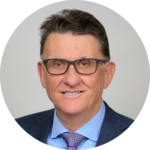EP#89: How to embed psychological safety in Australia’s workplaces
By fostering workplaces where people feel safe about speaking up with ideas or concerns, organisations empower their employees to thrive and unlock their full potential. This concept of psychological safety is supported by recent Work Health and Safety laws that came into effect in April this year and are being implemented across Australia. These regulations prescribe how leaders must identify and manage hazards and risks to workers’ psychological health and safety.
In this episode of the Work with Purpose podcast, our host David Pembroke together with Sarah Hawke, assistant secretary, Suicide Prevention and Priority Populations in Health, and Greg Vines, CEO of Comcare unpacks psychological safety at work. The panel delves into why psychological safety matters, and explores implementation challenges and strategies for leaders. This episode provides valuable insights into the importance of psychological safety and the steps organisations can take to create a supportive and thriving work environment.
Discussed in this episode:
- Defining and understanding a psychologically safe workplace
- Legislation and support for implementing psychological safety measures
- Challenges and strategies in making workplaces psychologically safe
- Importance of psychological safety for providing ‘frank and fearless’ advice
- Psychological safety in remote work and public sector contexts.
Guests

Sarah Hawke
Sarah Hawke is currently serving as assistant secretary, Suicide Prevention and Priority Populations at the Department of Health and Aged Care. Her work includes leading suicide prevention and mental health reform for priority populations in the department. With over a decade of experience in social policy reform and previous executive roles spanning social services and disability sectors, Sarah has followed her passion of connecting individuals to communities.

Greg Vines
Greg Vines currently serves as the CEO of Comcare, overseeing operations, governance, and reporting requirements as a corporate commonwealth entity. Prior to this, he held the role of deputy director-general for the International Labour Organization between 2012 and 2022. His professional trajectory also includes various leadership positions in trade union organisations.